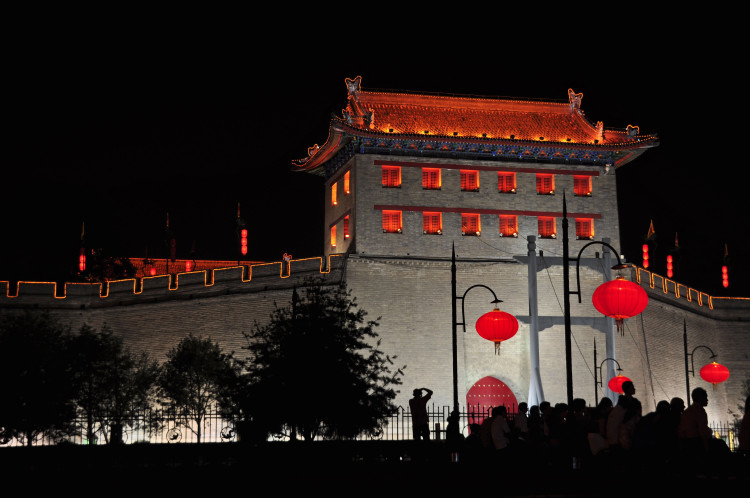China Can Look But Will Find Western Deals Hard to Touch: Gadfly

published Nov 6th 2016, 4:00 pm, by Nisha Gopalan
(Bloomberg Gadfly) —
No matter who becomes the next occupant of the White House, it’s already clear that it will be tougher for Chinese companies to make acquisitions in the U.S. and elsewhere in the West.Chinese companies have ramped up outside purchases amid a slowing economy at home, but they are finding a bigger push-back from politicians in their target markets. U.S. lawmakers have expressed strong concern about Chinese acquisitions in Hollywood and urged the Treasury Department to reject the $1.1 billion takeover of Aleris Corp., a Cleveland-based aluminum firm, by China Zhongwang Holdings Ltd. That came a week after once-welcoming Germany withdrew its support for the 670 million euro ($743 million) purchase of chipmaker Aixtron SE by a unit of Fujian Grand Chip Investment Fund LP.
Even as Chinese companies hone their sophistication in global dealmaking, it’s looking as if there’s not much left beyond Switzerland and Mediterranean markets like Italy and Portugal.
Scrapped Chinese overseas acquisitions are hitting levels not seen since 2009, when the world was reeling from the global financial crisis and mainland buying of overseas commodities and related companies was on a tear.
The U.S. has always been a tough market for China, which was made clear when regulators spurned oil giant Cnooc’s almost $19 billion bid for Unocal more than a decade ago. But that hasn’t stopped companies from trying, even as the list of spurned deals this year grows. For example, Anbang Insurance Group Co.’s $14 billion offer for Starwood Hotels & Resorts Worldwide Inc. earlier this year, scuttled in large part by opposition in Washington, is the second-biggest terminated Chinese transaction in the U.S.
As that deal indicates, opposition is moving beyond military-related, energy and infrastructure purchases. Technology options are also increasingly out, led by Tsinghua Unigroup’s $23 billion rebuffed attempt to acquire Micron, which would have been the largest Chinese overseas takeover at the time. The company also backed out of a $3.78 billion deal to invest in disk-drive maker Western Digital Corp. Other abandoned deals include a lighting unit put on the block by Royal Philips NV and Silicon Valley stalwart Fairchild Semiconductor International Inc.
The U.S. push-back has even expanded into so-called soft power like media. Tycoon Wang Jianlin, who has set his sights on Carmike Cinemas and finalized his acquisition of Golden Globes producer Dick Clark Productions, faces political accusations of being the vehicle for China’s takeover of American cultural trophies.Opposition isn’t limited to the U.S., either. Until the approach for Aixtron, Germany, while increasingly sensitive to Chinese purchases, seemed ready for China’s business despite rumblings about the sale of robot maker Kuka AG. That openness is going to be increasingly rare.
Australia, long a source of cheap commodities and utilities and highly dependent on trade with China, joined the chorus this year, blocking a bid last month from mainland Chinese buyers for Ausgrid, the country’s largest electricity network, as public opposition to the sale of everything from farmland to Sydney real estate heats up.
Even Britain, one of the most popular destinations for Chinese investing, is partly cooling to Chinese money after its vote to leave the European Union. After a brief delay, Britain approved the controversial 18 billion pound ($22.4 billion) Hinkley Point nuclear power project funded by Chinese money in September but attached new conditions on foreign investing in U.K. infrastructure.
That leaves just three relatively wide open big markets: Switzerland, home to agricultural giant Syngenta AG, which China National Chemical Corp. is looking to buy for $46 billion in its hunt for seed technology; Italy, where the Chinese chemicals giant acquired tiremaker Pirelli last year; and Portugal, whose largest insurer is now in Chinese hands.
But narrowing the potential Western geographies that are open for business means that access to the kind of technology knowledge or global brands the Chinese covet is becoming much more difficult. While strapped Greece or emerging markets like Pakistan open their smaller ports and utilities to Chinese money, the really big Western targets could be off the table.
Chinese bidders are going to have to either narrow their focus to targets in other parts of the world or focus on minority stake purchases if they want to keep buying overseas. Though unlikely to fizzle, China’s M&A boom is definitely beginning to sputter.
This column does not necessarily reflect the opinion of Bloomberg LP and its owners.




No Comment